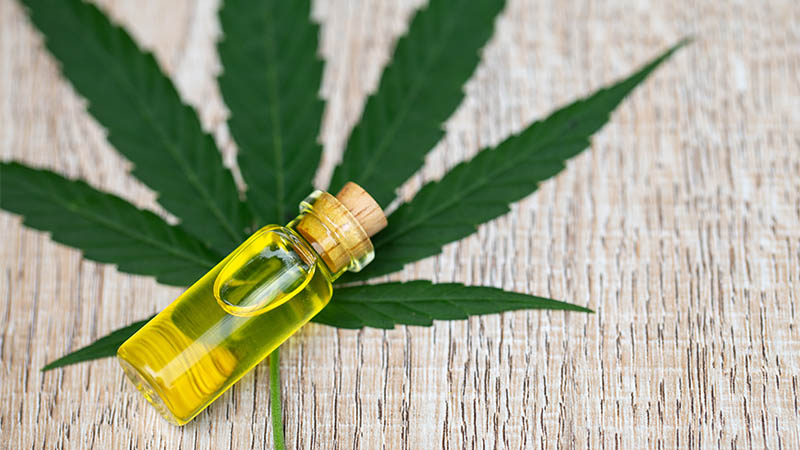Does CBD Oil Reduce Symptoms Related to Mental Disorders?
It is believed that 5-10% of people worldwide suffer from anxiety-related disorders, which in turn have an influence on quality of life and society as a whole. Over the last decade, there has been a considerable increase in mental health illnesses such as anxiety and depression, which can be attributed to a variety of factors such as global instability, the COVID-19 epidemic, and social media. It is seen that some present medications can have unpleasant side effects, highlighting the critical need for improved and innovative treatments in this field. This is where CBD may be a good candidate. Most people get CBD oil India online as it has previously proven effective in treating other ailments, and its therapeutic potential in the treatment of mental health disorders is being researched further.
The promising role of CBD in the treatment of mental health disorders
For thousands of years, people have used the cannabis plant as a medicine. The plant includes around 80 distinct chemicals known as cannabinoids. While tetrahydrocannabinol (THC) is well-known for its psychoactive characteristics, cannabidiol (CBD), the second most common component, has no psychoactive effects and thus, is preferred mostly.
In recent years, there has been increased interest in the possible mental health advantages of getting CBD oil India online. CBD is believed to aid with a variety of illnesses, but more research is needed to understand its possible impacts and advantages. Some existing research suggests that CBD has potential in the treatment of a variety of illnesses, including depression, anxiety, epilepsy, and sleep disorders, among others.
CBD has already been approved for the treatment of several epilepsy syndromes and there are many other studies currently being undertaken across central nervous system diseases and neurological disorders such as Parkinson’s disease and multiple sclerosis. A recent review on CBD and psychiatric disorders described CBD as a generally safe and well-tolerated pharmacotherapy with limited abuse liability, putting it in a good position for being a suitable treatment for psychiatric conditions.2 However, there is still a need for further, well-designed and adequately powered longitudinal studies to confirm this.
Areas Where CBD oil can help to reduce the symptoms of CBD
- CBD for PTSD: PTSD (post traumatic stress disorder) can be a debilitating condition. Causing symptoms like intrusive thoughts, nightmares and sleep difficulties, these can lead to people suffering with poor mental health as a result. PTSD is most commonly associated with war veterans, however, anyone who has experienced a traumatic event can experience it— no one is immune from the impacts of trauma. Although research into cbd oil india buy online and how it affects PTSD is minimal, one case study found that 12-37mg of oral CBD oil consumption lead to a reduction in anxiety symptoms and sleep disturbance for a ten-year old PTSD patient
- CBD for anxiety: Anxiety is a prevalent issue for lots of people, massively impacting how they function day-to-day. From our social interactions and relationships with people, to our sleep and eating habits, anxiety can cause a range of physical and mental symptoms, including fatigue, lack of concentration, and muscle tension. Anxiety and depression are two top reasons people seek mental health help. CBD is commonly used to manage psychiatric symptoms. CBD activates CB1 receptors in the brain which, when blocked, can increase anxiety. Research revealed that “pretreatment with CBD significantly reduced anxiety, cognitive impairment and discomfort in their speech performance.” This study was carried out on individuals with social anxiety disorder (SAD), with half of participants receiving CBD and the other, a placebo — those receiving the placebo reported higher anxiety, discomfort and alert levels.
- CBD for depression: Depression is one of the most common mental disorders around, affecting millions of people worldwide. One promising study found that seven days of CBD treatment “reduced mechanical allodynia, decreased anxiety-like behaviour, and normalized 5-HT activity.” This means that participants experienced fewer pain sensations from light touch, This is thought to be because CBD interacts with the serotonin receptor (5-HT) — although it doesn’t boost serotonin per se, its interaction is positive
- CBD for sleep difficulties: Find it hard to drift off to sleep at night? You’re not alone! Getting enough shut-eye is important not only for our bodies to rest, but our minds too. So much so that a lack of sleep can start to impact an individual’s mental state. Insomnia is also a symptom of mental health conditions, such as depression, anxiety and bipolar disorder. Luckily, one of the possible benefits of adding CBD to your daily routine is that it can help you unwind and feel more like yourself be
Should You Try CBD?
While CBD holds promise, a recent comprehensive review of the research suggests that support for the mental health uses of CBD remains insufficient. This 2019 study was published in The Lancet Psychiatry and looked at 83 studies on the use of CBD to treat mental illness.
The researchers looked specifically at six different disorders: depressive disorders, anxiety disorders, attention-deficit hyperactivity disorder, Tourette syndrome, post-traumatic stress disorder, and psychosis. The review examined previous studies dating from 1980 through 2018.
This does not mean that CBD isn’t necessarily effective; of the studies reviewed, most only included a small number of participants, followed participants for a short period of time, and less than half were randomized controlled trials.
Instead, this study suggests that there simply isn’t yet enough high-quality evidence to support the use of CBD to treat mental conditions. This may change in the future as more research is carried out.
Many experts remain optimistic that CBD may prove useful for a range of mental health conditions. “CBD has shown therapeutic efficacy in a range of animal models of anxiety and stress, reducing both behavioral and physiological (e.g., heart rate) measures of stress and anxiety,

